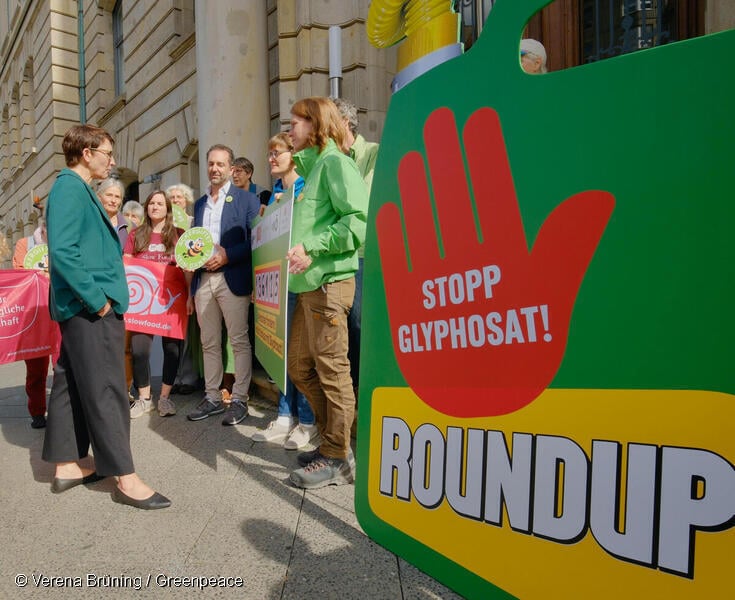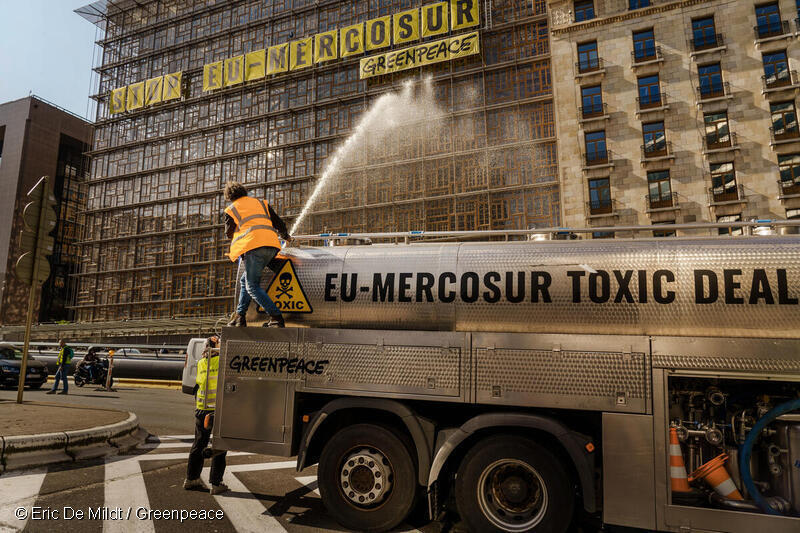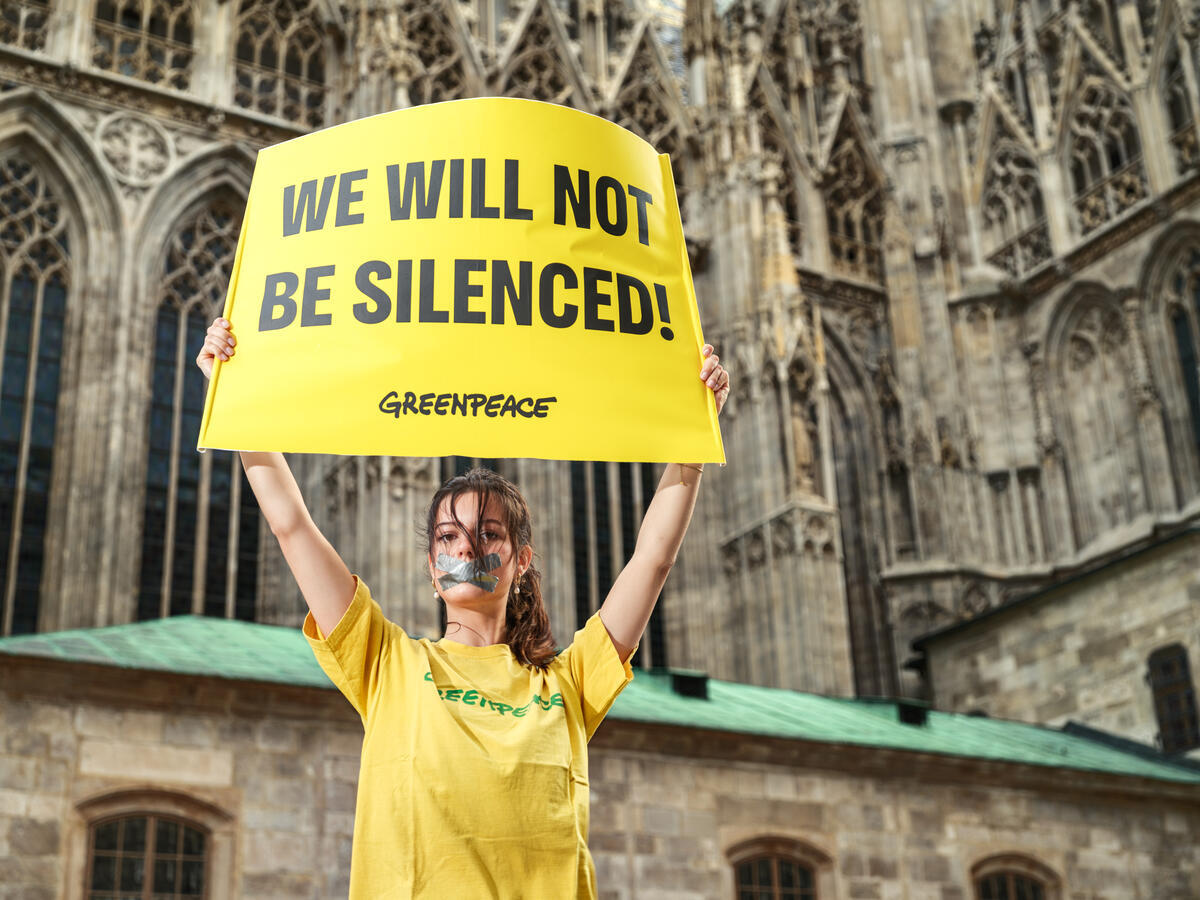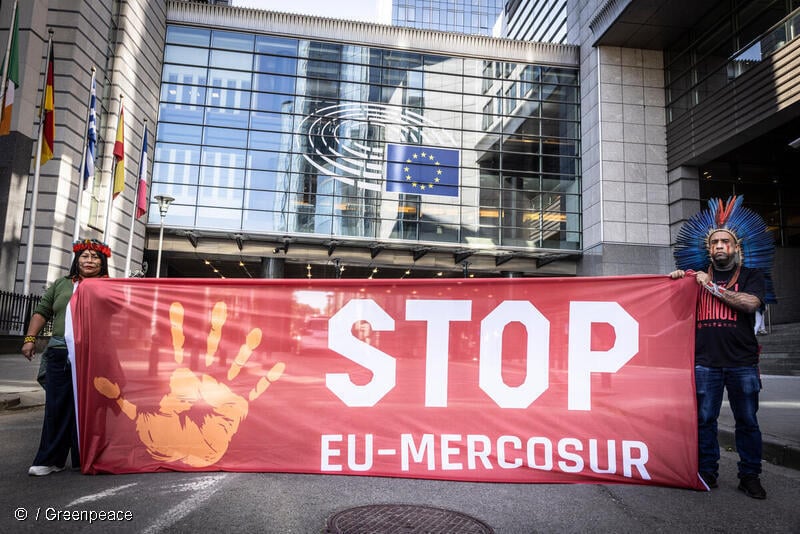
Brussels, 14 September 2023 – A series of protests is underway across Europe to ask decision makers to ban the use of glyphosate, for which EU authorisation is due to expire on 15 December 2023. Demonstrations in Germany and Italy this week and in Belgium on Monday take place in the wake of a controversial leaked document, which revealed the European Commission’s eagerness to renew glyphosate’s approval despite its negative effects on human health and the environment.
Tomorrow and on 22 September, the European Commission and representatives of national governments will discuss the renewal of the authorisation of glyphosate in the Standing Committee on Plants, Animals, Food and Feed (SCoPAFF). The Standing Committee is expected to vote on glyphosate’s re-authorisation on 12 October.
In a recent IPSOS poll commissioned by the Pesticides Action Network, 62% of people across six EU countries said they support a ban on the use of glyphosate. Greenpeace is calling on governments to oppose the renewal of glyphosate’s authorisation for use in the EU.
PHOTOS FROM ANTI-GLYPHOSATE PROTESTS IN GERMANY AND ITALY
Greenpeace EU glyphosate campaigner Eva Corral said “More than a million people called on the EU to ban glyphosate in 2017 and are still waiting for an answer. European governments should put public health and environmental protection before the private commercial interests of companies like Bayer, and ban this toxic weed-killer once and for all.”
Data gaps
In July, the European Food Safety Authority (EFSA) concluded its risk assessment of glyphosate, finding that there were “no critical areas of concern” regarding its use. EFSA’s conclusions contain many gaps in the data, and the risk assessment could not be finalised on some questions such as negative effects on human reproduction.
However, a multitude of independent studies show adverse effects of glyphosate on human health and the environment. This week, a new report from Générations Futures found that EFSA and ECHA, the European Chemicals Agency, did not take into account a number of scientific studies on the negative effects of glyphosate in their assessments. In 2020, a scientific advisory report from the Superior Health Council of Belgium concluded that there is enough evidence to ban glyphosate.
In a leaked draft of the decision to renew the authorisation of glyphosate, the European Commission considers that products containing glyphosate will still fulfil the safety requirements in EU pesticide legislation.
Precautionary principle
The Commission’s favourable stance towards glyphosate is deeply worrying in the light of the existing scientific literature and also in the light of the EU’s legislation on pesticides.
When it decides on the authorisation of pesticides, the Commission must comply with the precautionary principle and ensure a high level of protection of human health and of the environment. Industry must demonstrate that products placed on the market do not harm human or animal health or the environment.
If there is uncertainty as to risks of harm, as with EFSA’s conclusions, EU law and the precautionary principle require regulators to take protective measures without needing to wait and see whether the risks become fully apparent.
Alternatives to glyphosate exist. In 2020, Luxembourg banned its use in the country, as from 1 January 2021. However, the country had to reauthorise its use in 2023 after being sued by Bayer. Bayer bought Monsanto, the producer of glyphosate, in 2018.
Contacts:
Eva Corral, Greenpeace EU glyphosate campaigner: +32 (0)2 274 1918, [email protected]
Greenpeace EU press desk: +32 (0)2 274 1911, [email protected]
For breaking news and comment on EU affairs: www.twitter.com/GreenpeaceEU
Greenpeace is an independent global campaigning network that acts to change attitudes and behaviour, to protect and conserve the environment and to promote peace. We do not accept donations from governments, the EU, businesses or political parties. Greenpeace has over three million supporters, and 26 independent national and regional organisations with offices in more than 55 countries.
EU Transparency Register: 9832909575-41



